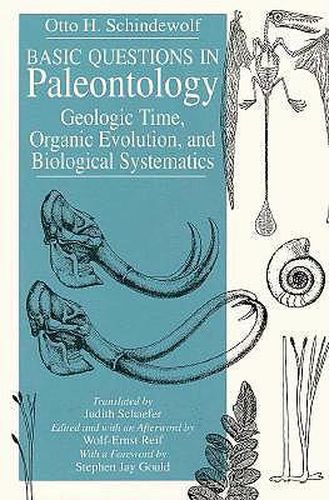Readings Newsletter
Become a Readings Member to make your shopping experience even easier.
Sign in or sign up for free!
You’re not far away from qualifying for FREE standard shipping within Australia
You’ve qualified for FREE standard shipping within Australia
The cart is loading…






Originally published in Germany in 1950, and now translated into English for the first time, Basic Questions in Paleontology has both historical importance and contemporary relevance because Otto Schindewolf’s ideas, considered revolutionary in his day, directly address many current debates within evolutionary biology. When originally published, Schindewolf s argument was highly controversial because it emphasized the importance of catastrophic events and mass extinctions in evolution at a time when American scientists were celebrating the neo-Darwinian evolutionary view that stressed gradual change over time. However, within the last 20 years, many challenges to the neo-Darwinian view have come to support Schindewolf’s argument. What appeared radical a few decades ago now seems strikingly modern.
$9.00 standard shipping within Australia
FREE standard shipping within Australia for orders over $100.00
Express & International shipping calculated at checkout
Originally published in Germany in 1950, and now translated into English for the first time, Basic Questions in Paleontology has both historical importance and contemporary relevance because Otto Schindewolf’s ideas, considered revolutionary in his day, directly address many current debates within evolutionary biology. When originally published, Schindewolf s argument was highly controversial because it emphasized the importance of catastrophic events and mass extinctions in evolution at a time when American scientists were celebrating the neo-Darwinian evolutionary view that stressed gradual change over time. However, within the last 20 years, many challenges to the neo-Darwinian view have come to support Schindewolf’s argument. What appeared radical a few decades ago now seems strikingly modern.